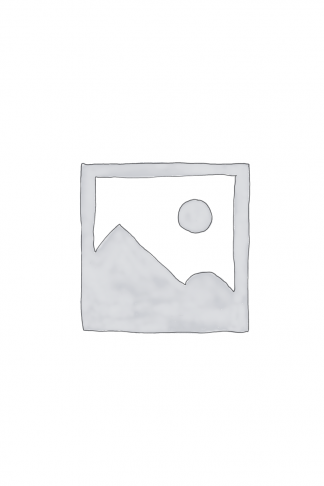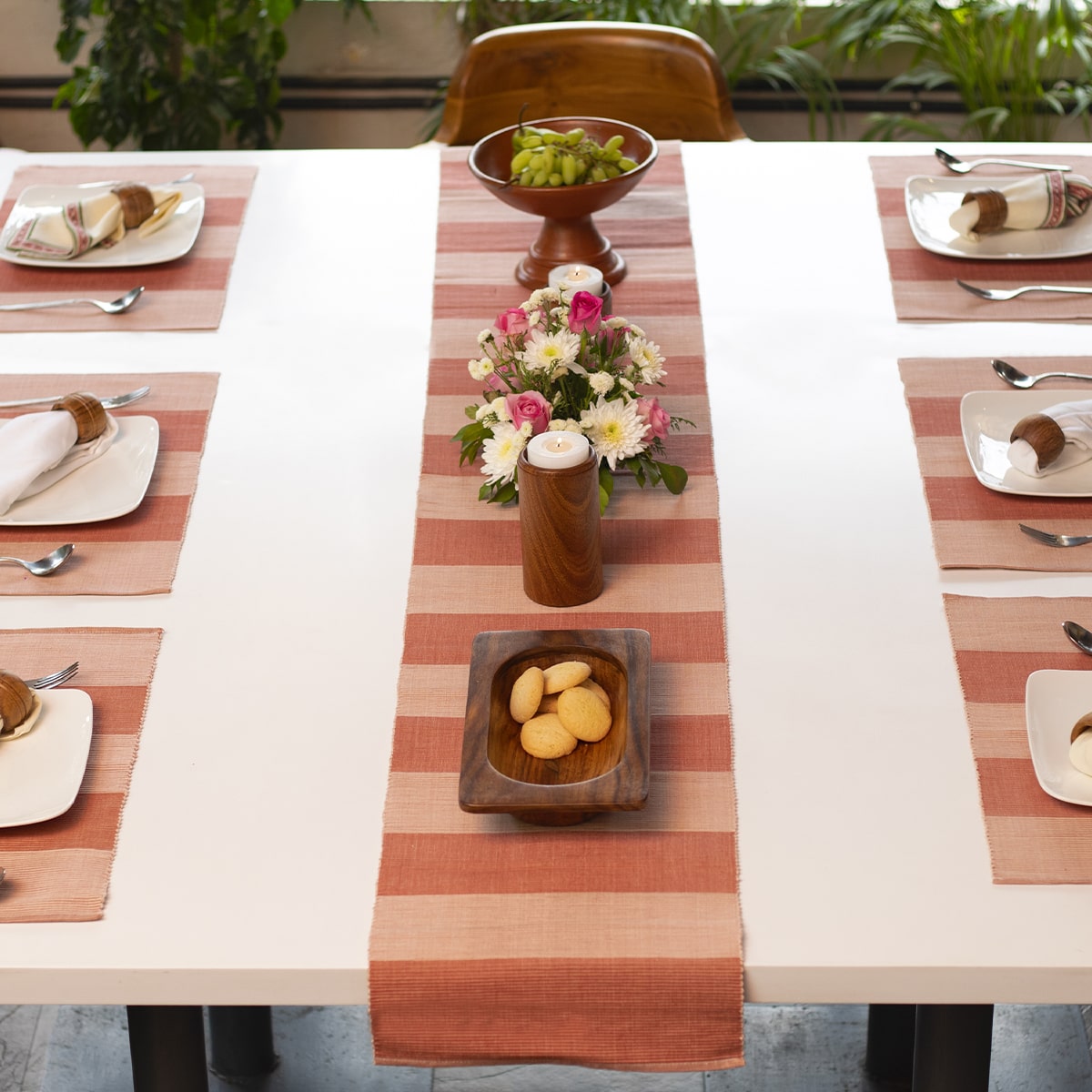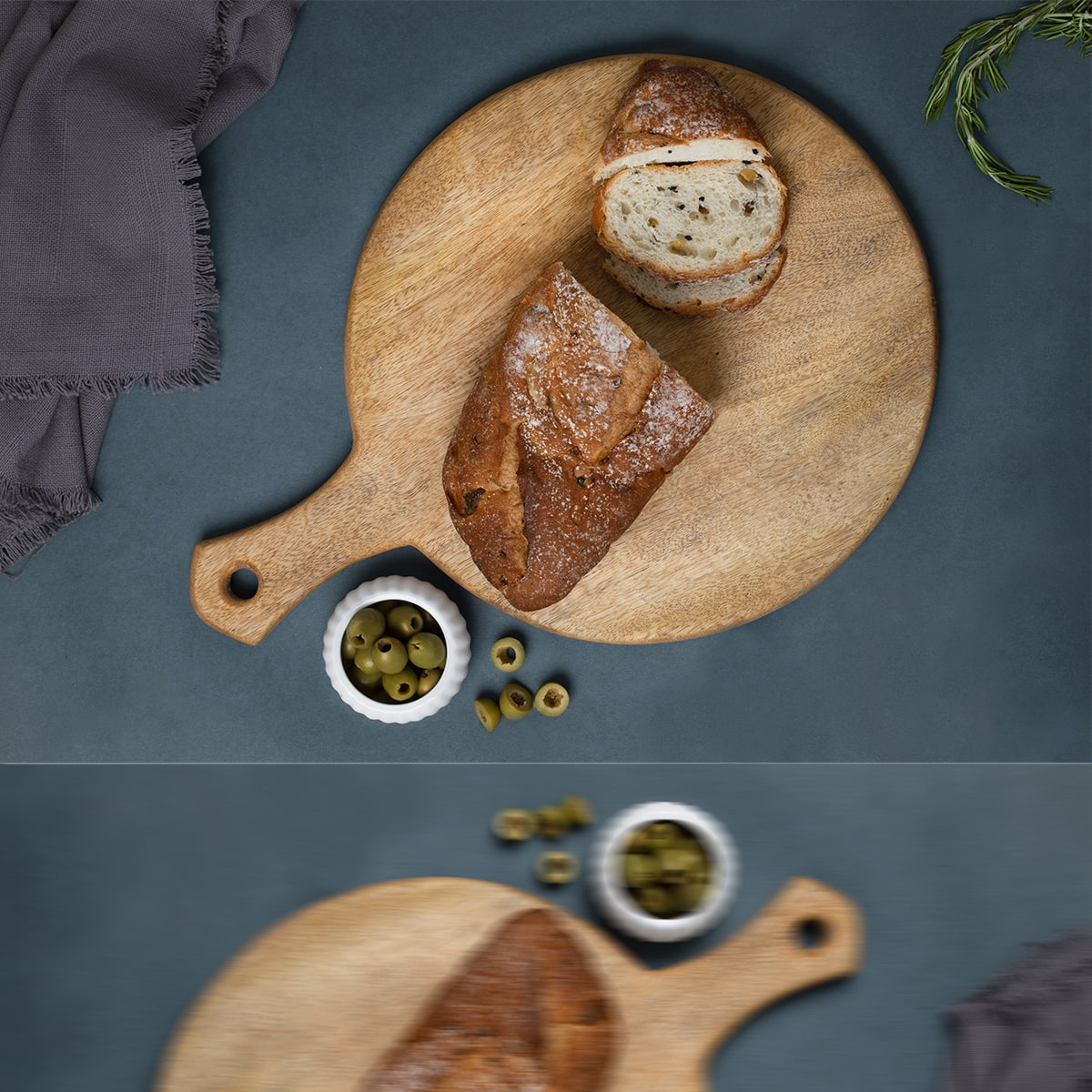Showing 13–16 of 16 results
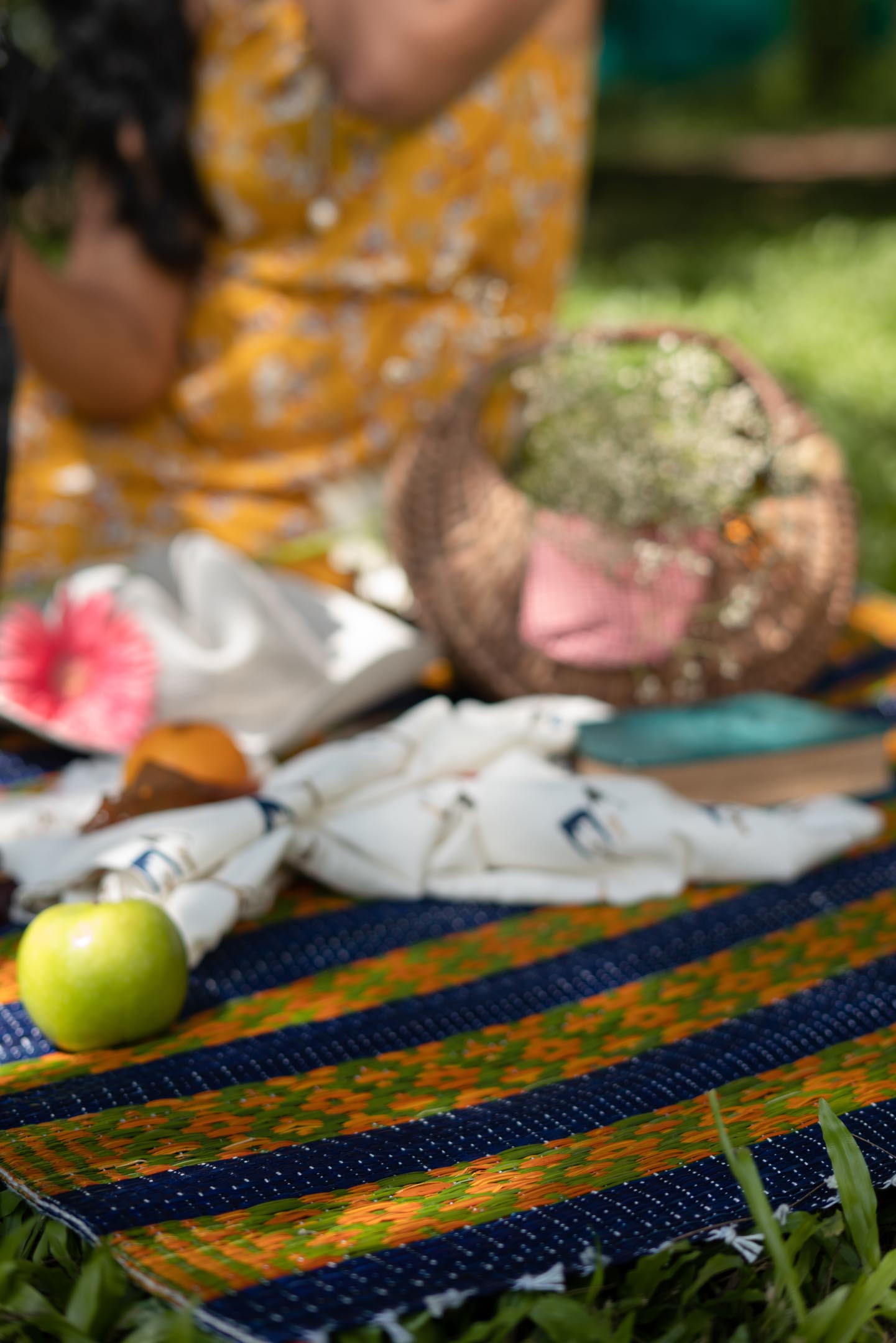
Saantham Picnic Mat
$65.00
A comfortable mat handcrafted by Bindu, Sindhu, Beena and Sheeja, the weavers of Killimangalam. A dash of turmeric sprinkled with beetle nut leaves and bordered with blue. Here is a mat you can have for a relaxing outing. Story of Cora Grass and Mat weaving: Cora Grass is found along river banks and in marshy lands. It can grow up to a height of two meters. Family members of mat weavers collect these cora grass and bring it for processing. They cut each grass stem into four strands and remove the soft material at the centre. Before further processing, the grass is dried under the sun, till it develops a beige colour naturally. The grass is then dyed using different colouring materials and processes to match artists imagination. Sometimes, the colouring process takes days, depending on the shade of colour desired. The handcrafted mats are woven using hand operated looms. A set of white yarns as the warp (length) and thin strands of cora grass as weft (width), are woven on a loom hand-operated by weavers. These looms do not use electricity. Human handling lends the mat a unique feel and more value. The resultant mat is softer, more durable and much more comfortable than machine-made mats. The cora grass strands are compacted by hand by the weavers, ensuring sturdiness to the mat. The art of hand weaving is labour intensive and takes a longer time. But, the beauty and quality it adds to the mat is priceless. Choosing handwoven mats supports the rich weaving heritage of Killimangalam and lets the weavers carry on the precious art-form to the future generations as well.
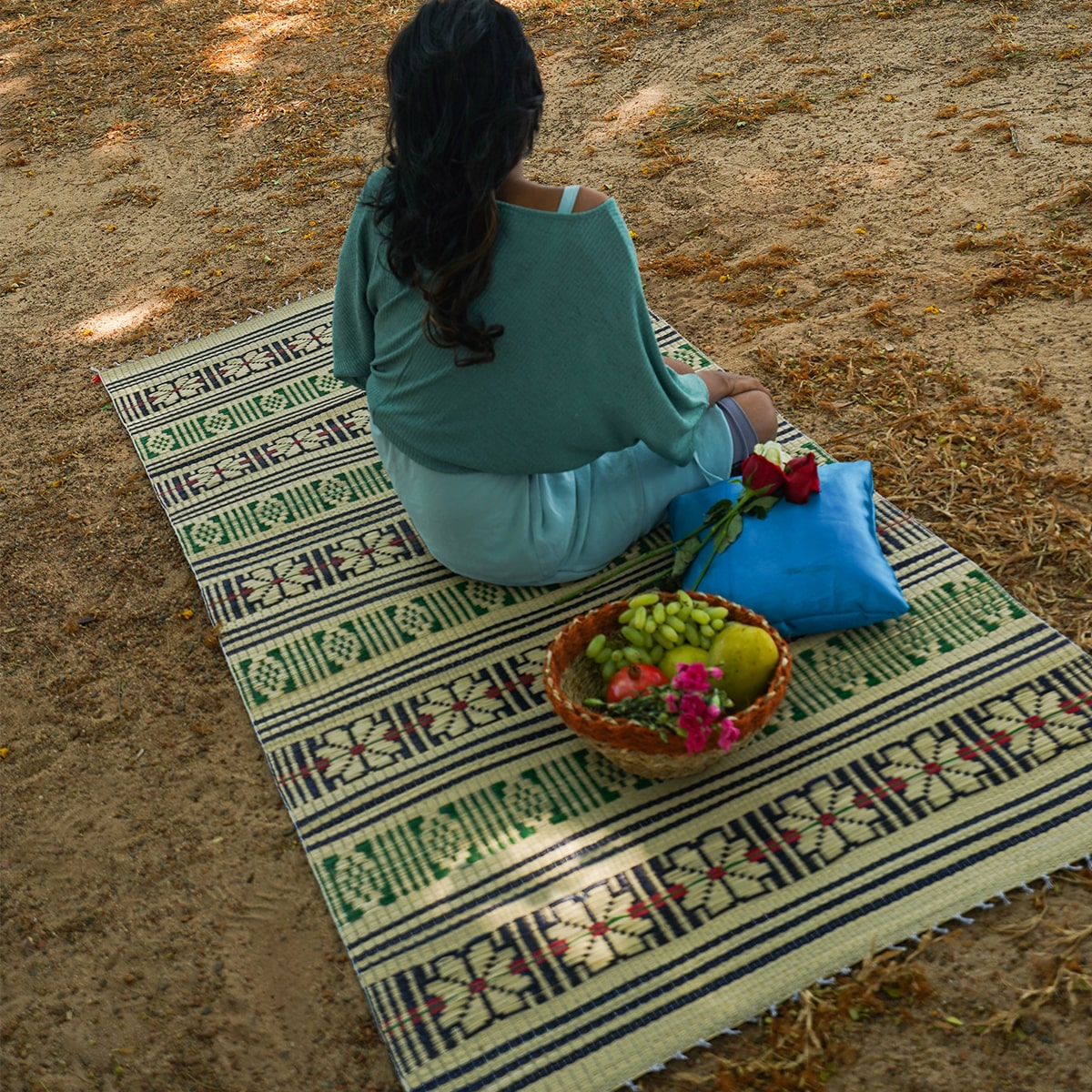
Shobha Picnic Mat
$65.00
The unique design adds "Shobha" (brilliance and charm) to the mat. Spread this outdoors and rest on it for a relaxed outing. Get noticed by the unique design of the mat! Story of Cora Grass and Mat weaving: Cora Grass is found along river banks and in marshy lands. It can grow up to a height of two meters. Family members of mat weavers collect these cora grass and bring it for processing. They cut each grass stem into four strands and remove the soft material at the centre. Before further processing, the grass is dried under the sun, till it develops a beige colour naturally. The grass is then dyed using different colouring materials and processes to match artists imagination. Sometimes, the colouring process takes days, depending on the shade of colour desired. The handcrafted mats are woven using hand operated looms. A set of white yarns as the warp (length) and thin strands of cora grass as weft (width), are woven on a loom hand-operated by weavers. These looms do not use electricity. Human handling lends the mat a unique feel and more value. The resultant mat is softer, more durable and much more comfortable than machine-made mats. The cora grass strands are compacted by hand by the weavers, ensuring sturdiness to the mat. The art of hand weaving is labour intensive and takes a longer time. But, the beauty and quality it adds to the mat is priceless.
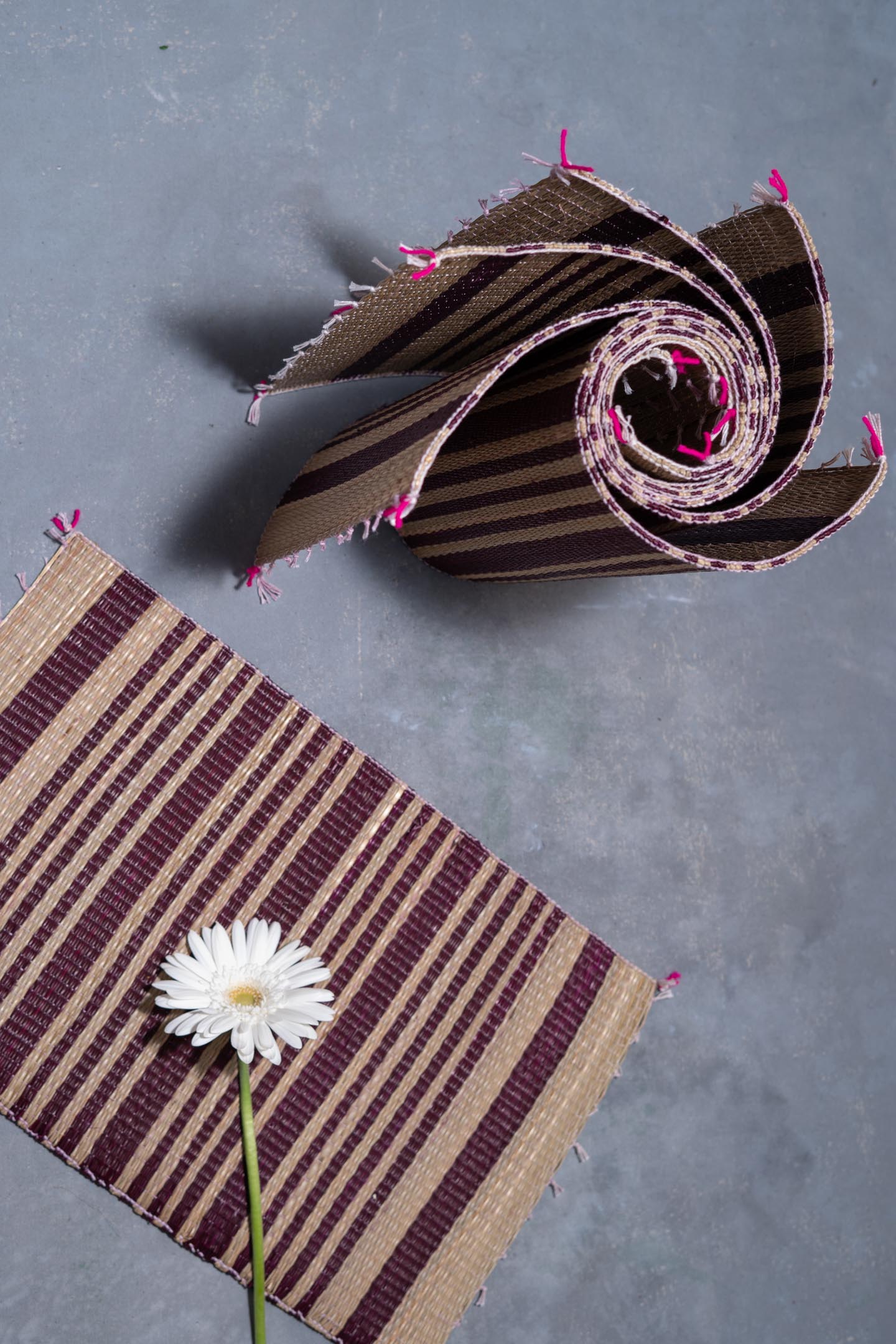
Vara Place Mats
$45.00
Elevating Brown Placemat Set of six is perfect for protecting the dinner table from water marks, food stains or heat damage. You can use these placemats set for everyday dining as well as for special occasions. It makes the dining table more presentable and elegant. You may pair it with other tableware from Graamyam to complete the look of your dinner table. Story of Cora Grass and Mat weaving: Cora Grass is found along river banks and in marshy lands. It can grow up to a height of two meters. Family members of mat weavers collect these cora grass and bring it for processing. They cut each grass stem into four strands and remove the soft material at the centre. Before further processing, the grass is dried under the sun, till it develops a beige colour naturally. The grass is then dyed using different colouring materials and processes to match artists imagination. Sometimes, the colouring process takes days, depending on the shade of colour desired. The handcrafted mats are woven using hand operated looms. A set of white yarns as the warp (length) and thin strands of cora grass as weft (width), are woven on a loom hand-operated by weavers. These looms do not use electricity. Human handling lends the mat a unique feel and more value. The resultant mat is softer, more durable and much more comfortable than machine-made mats. The cora grass strands are compacted by hand by the weavers, ensuring sturdiness to the mat. The art of hand weaving is labour intensive and takes a longer time. But, the beauty and quality it adds to the mat is priceless. Choosing handwoven mats supports the rich weaving heritage of Killimangalam and lets the weavers carry on the precious art-form to the future generations as well.
Showing 13–16 of 16 results
Related products
View all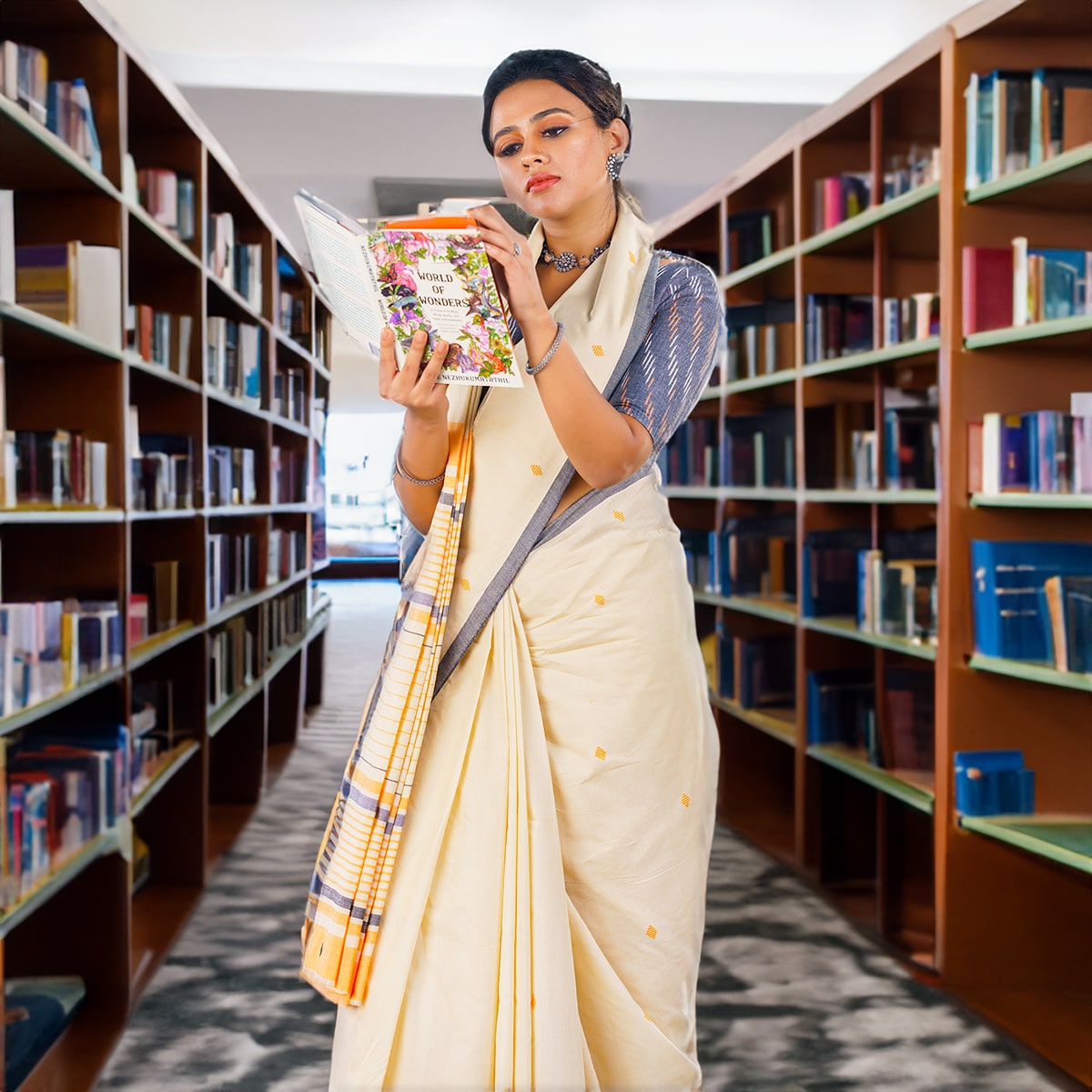
Sarada Saree
$3600
$3600
Story of Weaving: The handloom fabric is a type of fabric that is woven using hand operated looms. Two sets of interlacing yarns, the warp (length) and weft (width), are woven on a loom hand-operated by weavers. These looms do not use electricity. Human handling lends the fabrics a unique feel and renders the fabrics more value. The resultant fabric is softer, more durable and much more comfortable than machine-made fabrics. Handloom cotton is more breathable and thus feels lighter in summers and provides more insulation in winters. The dyeing process also becomes easier for handloom cotton as the colour penetration is substantially more. Hues are absorbed better thus look resplendent on handloom cotton. The art of hand weaving is labour intensive and takes a longer time. But, the beauty it adds to the fabric is priceless. Choosing handloom cotton supports the rich weaving heritage of India and lets the weavers carry on the precious art-form to the future generations as well.
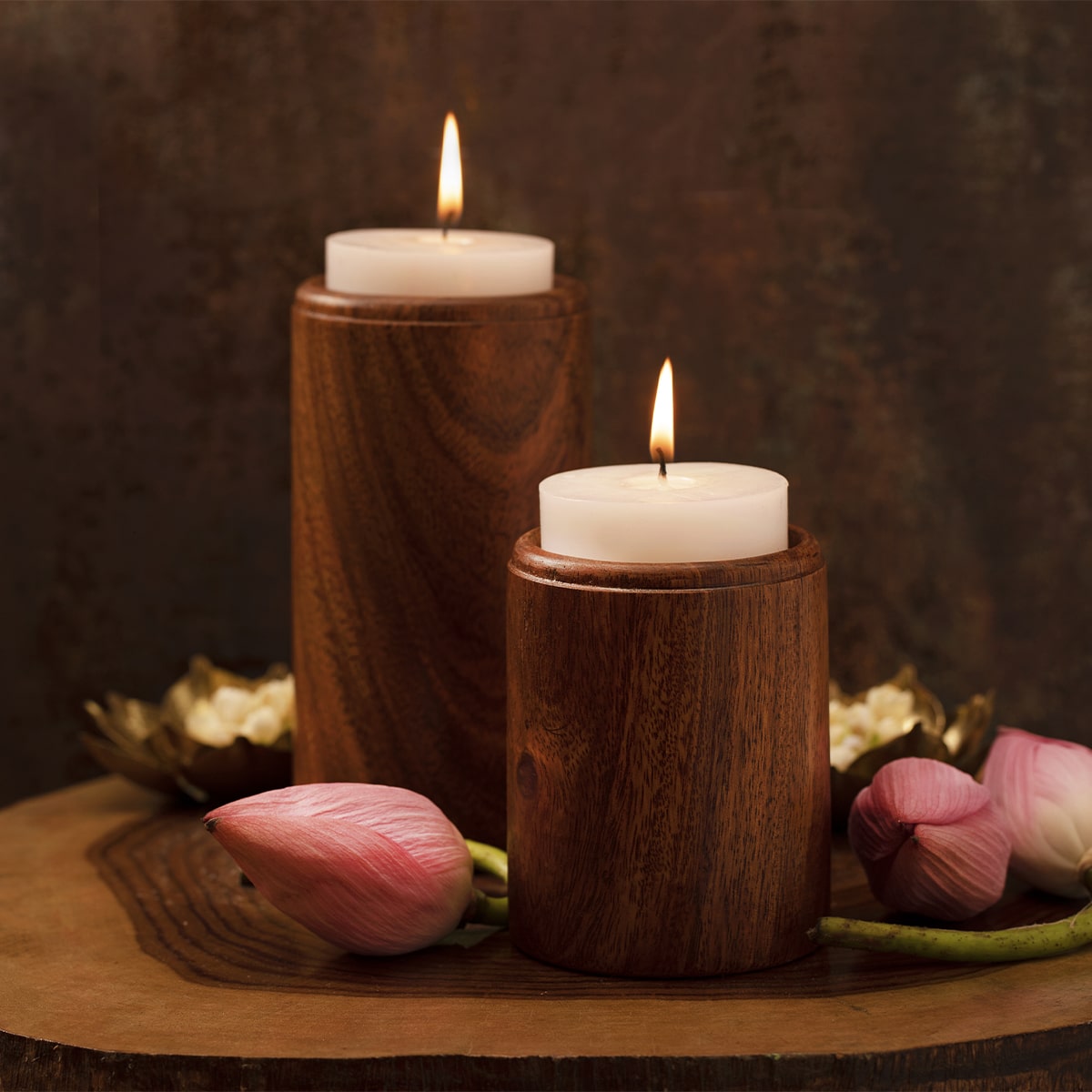
Prakasham Wooden Candle Stand
Let the candle light dinner be a royal one with these elegantly crafted candle stands. You can also use these stands to light up a candle for a prayer Wood Craft: We use good quality Mango wood and teak to make the products. Traditional carpenters use hand operated tools to carve the products out of large wood logs. It is hand finished to make it smooth
